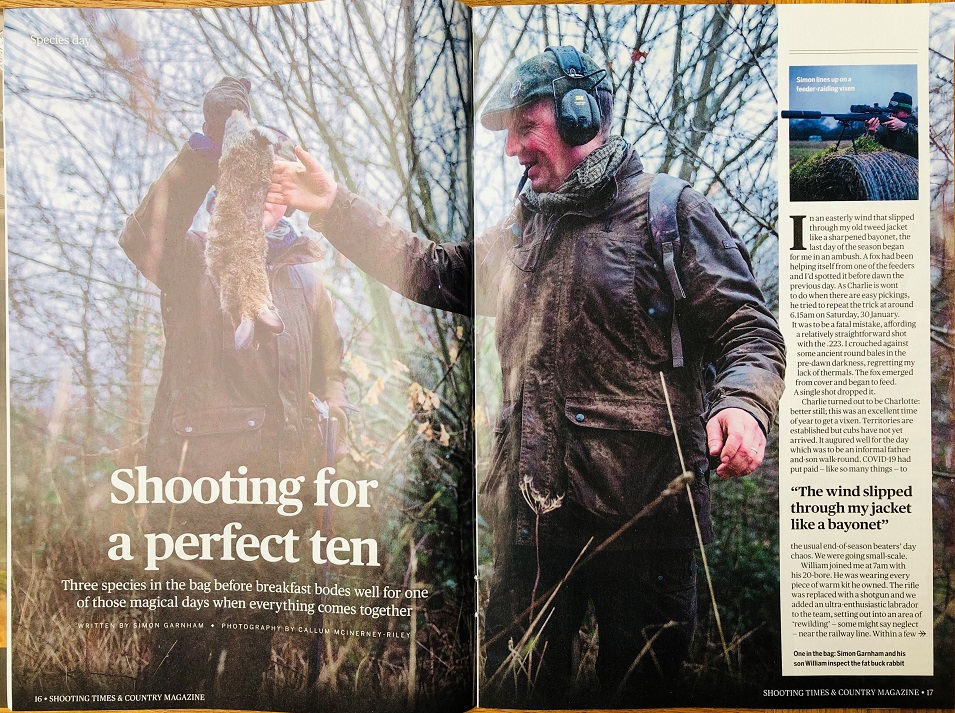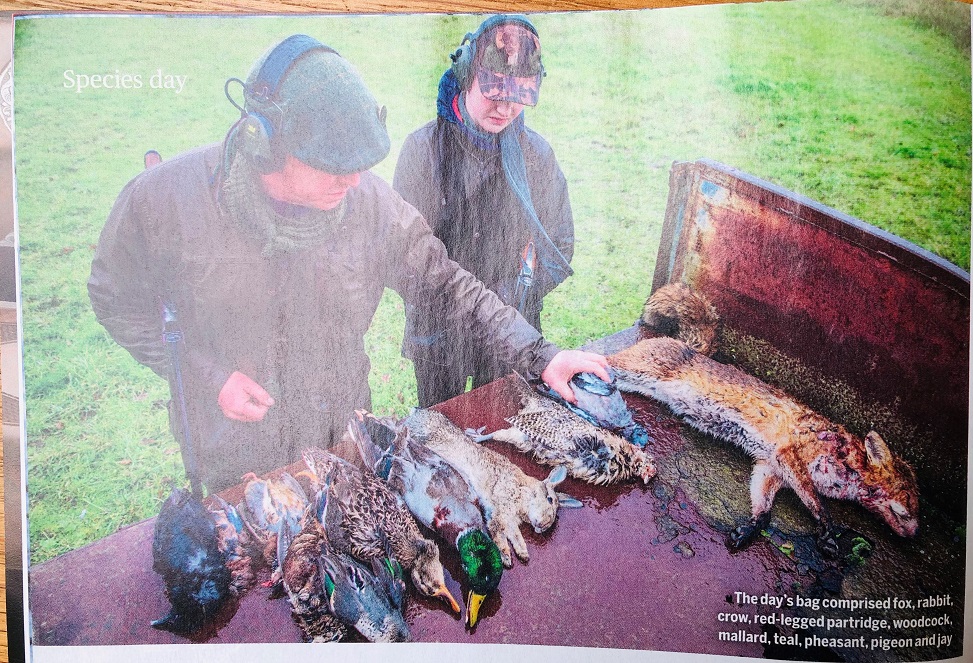Alleged breach of General Licences (updated)
Note: this blog was originally posted on 28 May, and was temporarily removed after a few days. It is now republished in its original form. There are important developments in this issue which we publish here and here and which should be read alongside this blog post.
For a small number of species the authorities issue General Licences rather than making individuals make applications on a case by case basis. The General Licences are published on websites and list the species which can be killed and the circumstances and purposes under which killing is lawful. Under these licences, millions of birds are killed in the UK (mostly Wood Pigeons, and various crow species) without any real oversight or monitoring. Wild Justice calls this ‘casual killing’ and we have acted to tighten up the system – with some success. We are not wholly against any control of bird species but we believe that the current system amounts to casual licensing of casual killing of far too many protected birds.
Wild Justice has been involved in legal action against the General Licences (there are different versions of the licences in each of the four UK nations) since we sprang into existence in February 2019. We have shone a light on the conditions that apply to these licences, the species that can be killed under them and the circumstances under which they are valid (see these 11 blogs: The Wild Justice legal challenge to the general licences GL04, GL05 and GL06, 10 May 2019, Mr Gove please stop the casual killing of Jays, 12 May 2019, Wild Justice response to consultation on general licences, 13 May 2019, NRW your general licences are unlawful, 4 February 2020, Our latest legal challenge – general licences in Wales, 18 March 2020, The strange case of NRW and the missing eggs, 22 March 2020, Why is NRW allowing casual killing of Jackdaws? 28 March 2020, Permission granted for judicial review of Welsh general licences – we’re going to court, 3 August 2020, General licences in England – Wild Justice legal challenges bring about significant reform, 9 November 2020, General licences in general and our challenge to the NRW general licences in particular, 20th December 2020, Further success on general licences – this time in Wales, 18 January 2021.
The legal judgment referred to in the last of those blogs, by Justice Jarman, made it clear that the legality of the general licences was dependent on there being a present danger and that the licences should not be relied upon at times of year or in locations where there was no threat to the interest being allegedly protected.

Imagine our surprise then, when we opened the 10 February 2021 edition of Shooting Times and read an article written by a General Licence user in Essex who described setting out to shoot, and then succeeding in shooting, ten different species in ten hours just ‘to see if it could be done’.
As three of the thirteen animals that he described shooting that day were covered by the new General Licences GL40 (Carrion Crow and Jay) and GL42 (Wood Pigeon) and thus subject to certain licence conditions that prevent what we would describe as ‘casual killing’, e.g. killing them just ‘to see if it could be done’ within a particular time limit, on the evidence available it is our view that this licence-user breached the terms of General Licences GL40 and GL42.


These alleged breaches were published in an article in Shooting Times, without any editorial comment about the activities described, and thus could be perceived by its readers as activity within the scope of the General Licences that may be replicated elsewhere in England. We put it to the regulator, DEFRA, that this activity amounted to alleged breaches of the General Licences and we asked DEFRA to investigate and consider imposing enforcement action.
According to the terms of General Licences GL40 and GL42, failing to comply with the terms of the licence may result in the following consequences:
If you do not comply with this licence’s terms and conditions you may face serious consequences.
Failing to comply with the licence may:
• mean you commit a criminal offence under the 1981 Act – the maximum penalty available for such an offence is, at the time of issue of this licence, an unlimited fine and a 6 month custodial sentence
• result in your permission to use this licence being withdrawn – the Secretary of State will notify you in writing if your permission to use this licence is withdrawn and the Secretary of State may impose a similar sanction in relation to other similar licences.
https://www.gov.uk/government/publications/wild-birds-licence-to-kill-or-take-for-conservation-purposes-gl40/gl40-general-licence-to-kill-or-take-certain-species-of-wild-birds-to-conserve-endangered-wild-birds-or-flora-and-fauna and https://www.gov.uk/government/publications/wild-birds-licence-to-kill-or-take-to-prevent-serious-damage-gl42/gl42-general-licence-to-kill-or-take-certain-species-of-wild-birds-to-prevent-serious-damage
The shooting described in the article took place on 30 January 2021, and was published in the Shooting Times of 10 February 2021. We wrote to DEFRA on 26 March drawing this matter to the Secretary of State’s attention with a letter setting out our thoughts on the legal matters and an ecological statement which set out matters such as the fact that there was no present danger to species such as Nightingale and Yellow Wagtail on the date in question as both species were then in their African wintering grounds. DEFRA told us they would look into this matter but then on 26 April said they would not be providing any further updates, to which Wild Justice replied saying that we believe this is a matter of public interest on which the Secretary of State should act and that we would be bringing this matter to the public’s attention. This is us bringing it to your attention. We still await action from DEFRA on this matter.
